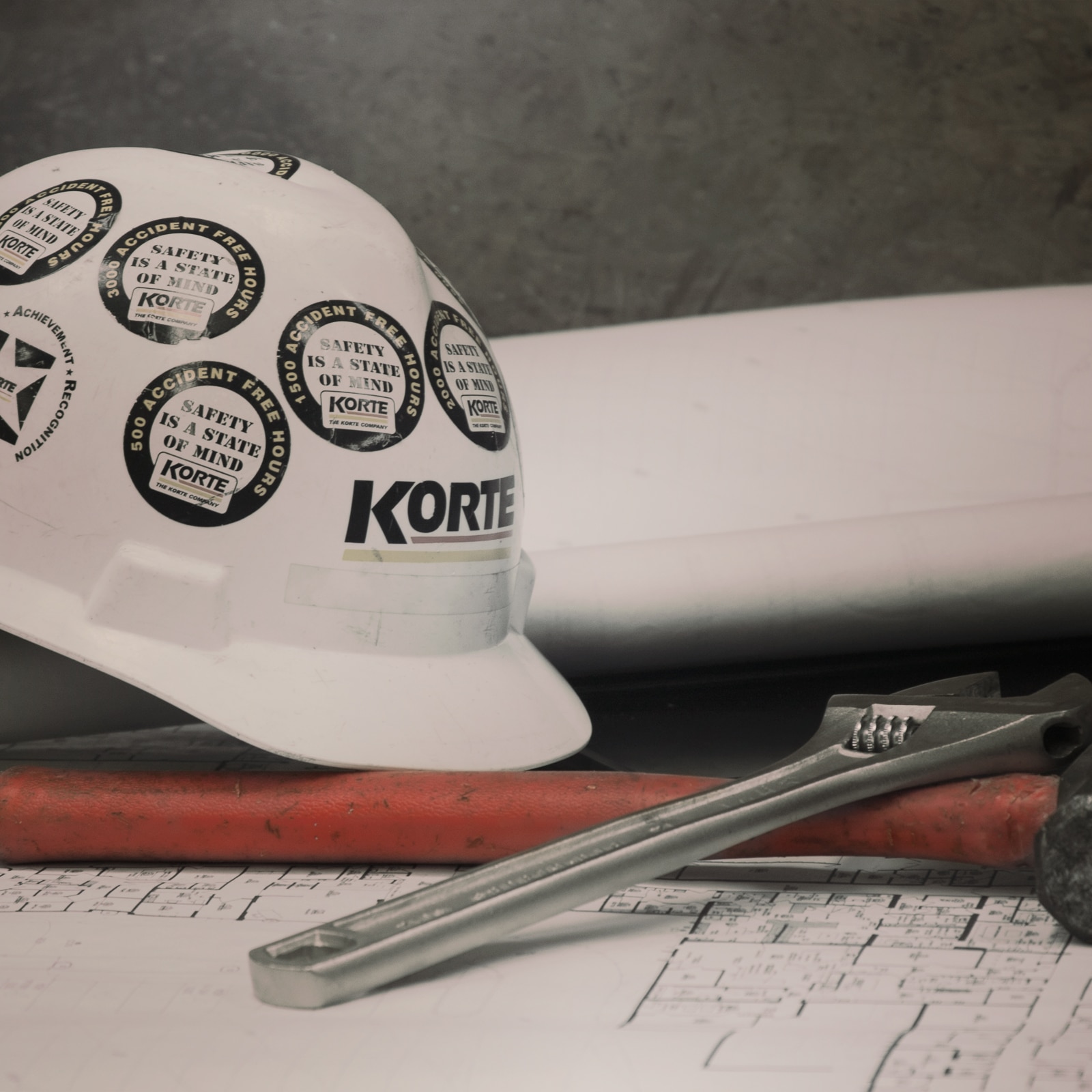When you grow up in a small town like Highland, the particularities of the place get imprinted onto you.
Buildings are known by the business that used to be there, and that big old water fountain in the city square has been there forever, and people know your relatives before you even share your full name. But of the many details Executive Assistant Sandy Grapperhaus could tell you about the Highland of her childhood, there’s one we especially like hearing: her memories of The Korte Company.
“It was always a big deal. Everybody knew who Ralph Korte was, and his big building on Route 40. It was just always there — and it seemed like a good place to start.”
That was more than four decades ago. She’s seen a lot of growth and change over the years, both in herself and with the company. She jumped from the print room to Korte Architectural Services to Korte Interiors to working alongside top leadership as an executive assistant.
But she’s never outgrown the thrill of hard work.
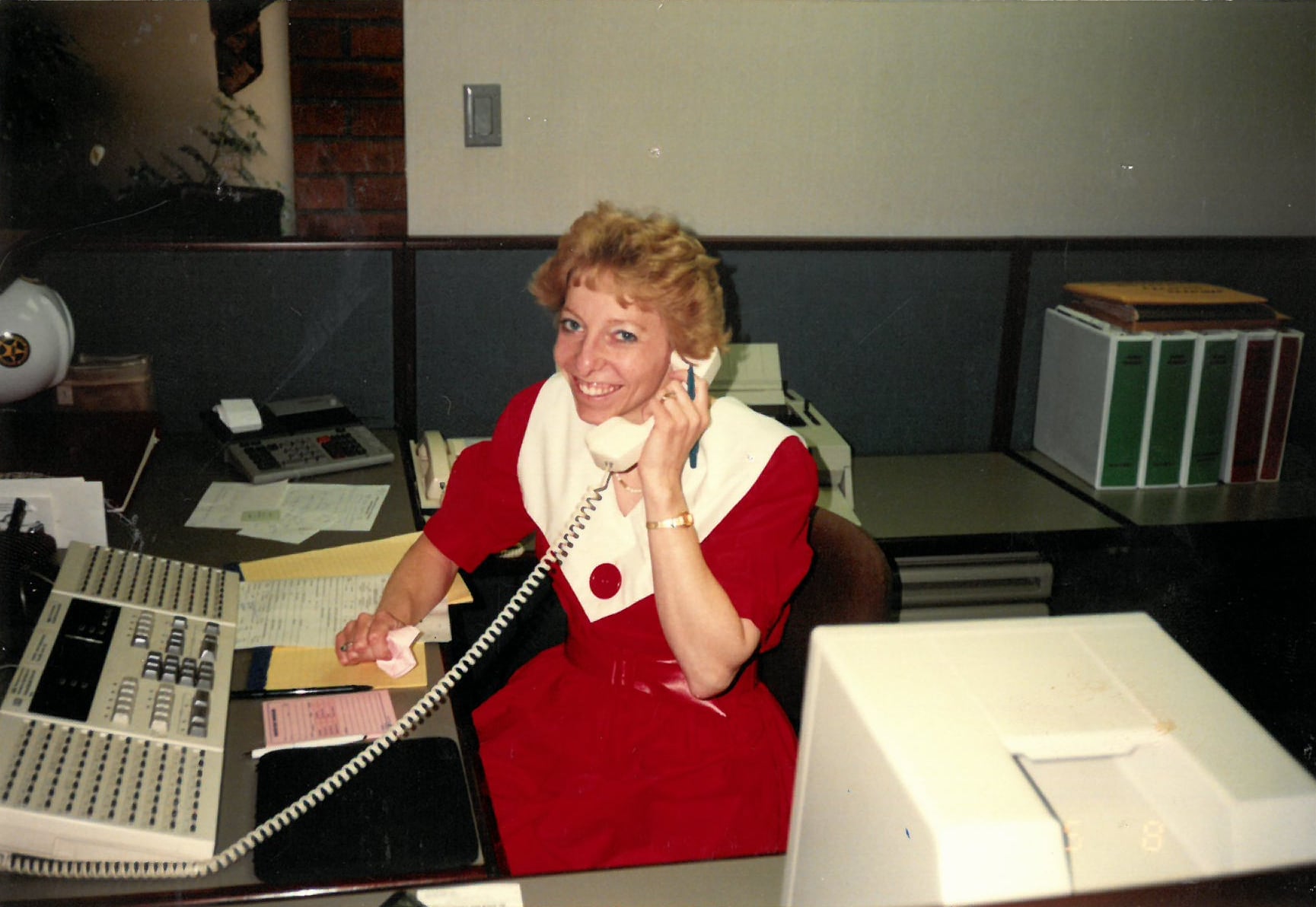
A good place to start, and a good place to stay
Straight out of high school, she worked in the print room, feeding paper rolls into the copy machine to make blueprints. In those days, blueprints were made with ammonia, but the vapors never fazed her.
“I was pretty quick at it. I used to race myself. I could tell that Korte was appreciative of someone that worked hard, so I did.”
Sandy stayed with The Korte Company and took on more duties. Even though her role has changed over the years, she can still recall the exact steps of that first job.
“You’d put a piece of coated paper under the original drawings so that the light could get through everything except where the original drawing lines were. Then the ammonia system took away the coating except where those lines were. It was a light system that removed the empty spaces on the paper.”
As business boomed, Sandy occasionally needed support. The company hired another self-starting high schooler looking for a job. But it wasn’t just anyone.
“Believe it or not, Todd Korte was my high school kid that came and helped me! He was a busy high school kid who was in band and football and did plays. But his dad still wanted him to come to the office and work.”
Sandy was just a few years older than Todd, and they had fun working together. She still laughs when she thinks of the funny stories she could tell about those days. But like most loyal employees, Sandy knows how to keep old secrets.
After a year in the print room, Sandy became an administrative assistant in the architecture department. She was one of just two people who knew how to use the old-fashioned word processing equipment to write specifications, and she often found herself training new assistants.
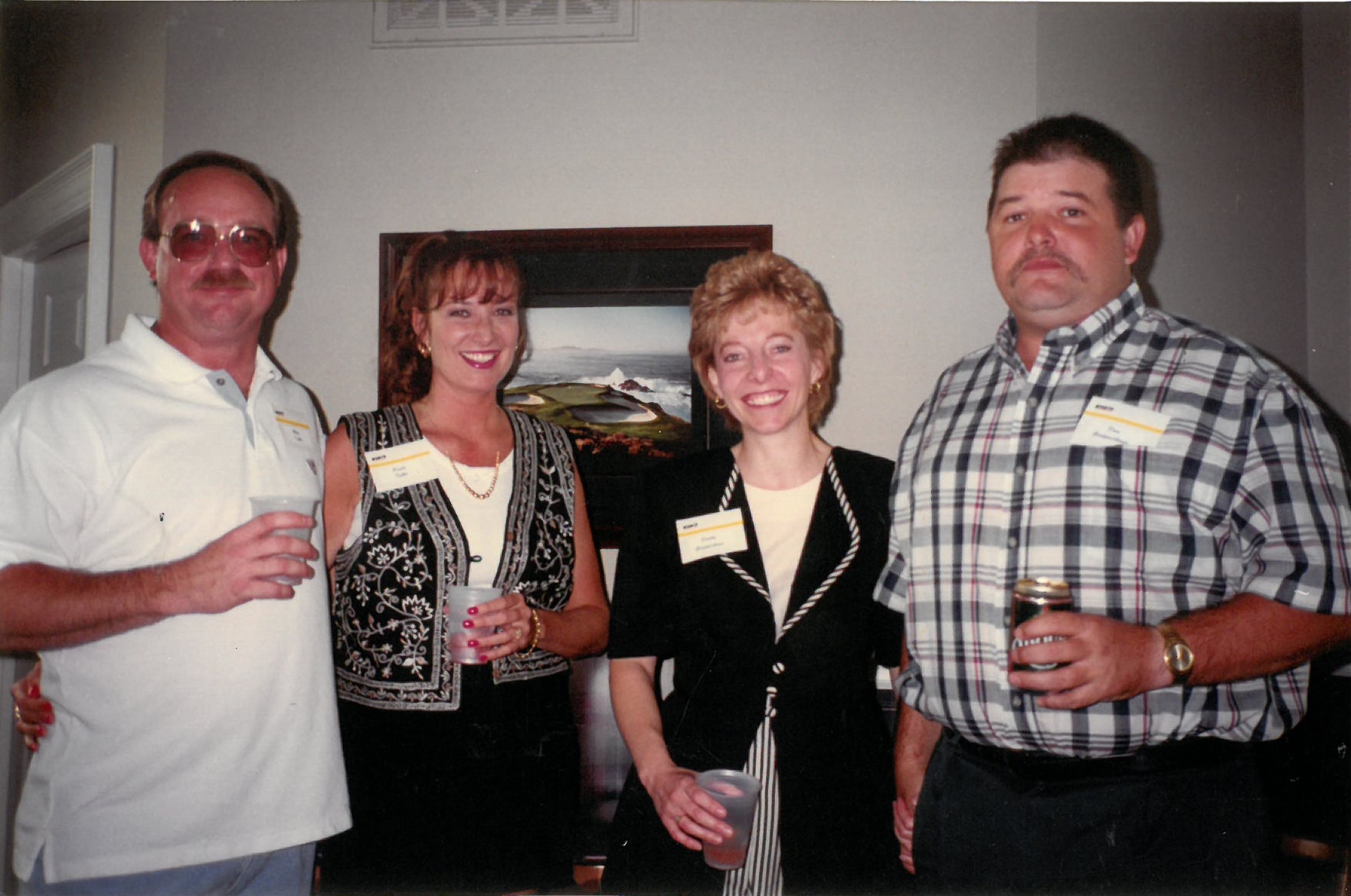
“I trained several different girls because a lot of the time we’d hire them, then they’d fall in love with an architect, get married and leave. But it was fun, I enjoyed it.”
She also occasionally dropped back into the print room as needed. In just a few short years, she honed a kind of adaptability that made her valuable across multiple departments.
“Korte Interiors was right next to the architects, and they started stealing some of my time. So I was helping them and the architects. The manager in charge of the interiors department was a strong woman named Jane Lauer, and she finally stole me from the architectural department.”
These were critical years for Sandy, who would find herself working in the same spaces as revered employees like Jane Lauer, Bill Pistrui and Dennis Calvert, the visionary who spearheaded Design-Build for the company
“I’ll never forget Dennis Calvert because he gave me one of the best pay raises that I recall. I think he realized I wasn’t getting paid enough even though I was working hard.”
That hard work paid off in more than just raises. By 1991, Sandy earned the biggest career jump of her life: She became the manager of Korte Interiors.
“It was rough.”
Promotions are usually good things, but Sandy isn’t ashamed to admit that she struggled during her three-year stint leading Korte Interiors.
“Managing people, there’s my problem. I couldn’t put up with not doing things myself — and a manager can’t do that.”
In addition to running the department, her other core duty was furniture sales. But she had a hard time saying no to clients, often resulting in weekend installations and micromanaging the interior designers.
“My poor workers hated me. It made everybody in the department mad. And even though the division was making pretty good money, it was rough and it took a toll on my family life, too.”
That’s why she voluntarily stepped down and took a job as a project management assistant to Mike Tubbs at the St. Louis Union Station Office.
“A lot of people were shocked that I would leave all that. I could have tried to get something more high-powered or better pay, but I was raising three kids, and I’m still old school. That family life couldn’t take a backseat. I had to juggle it. It worked out best for me.”
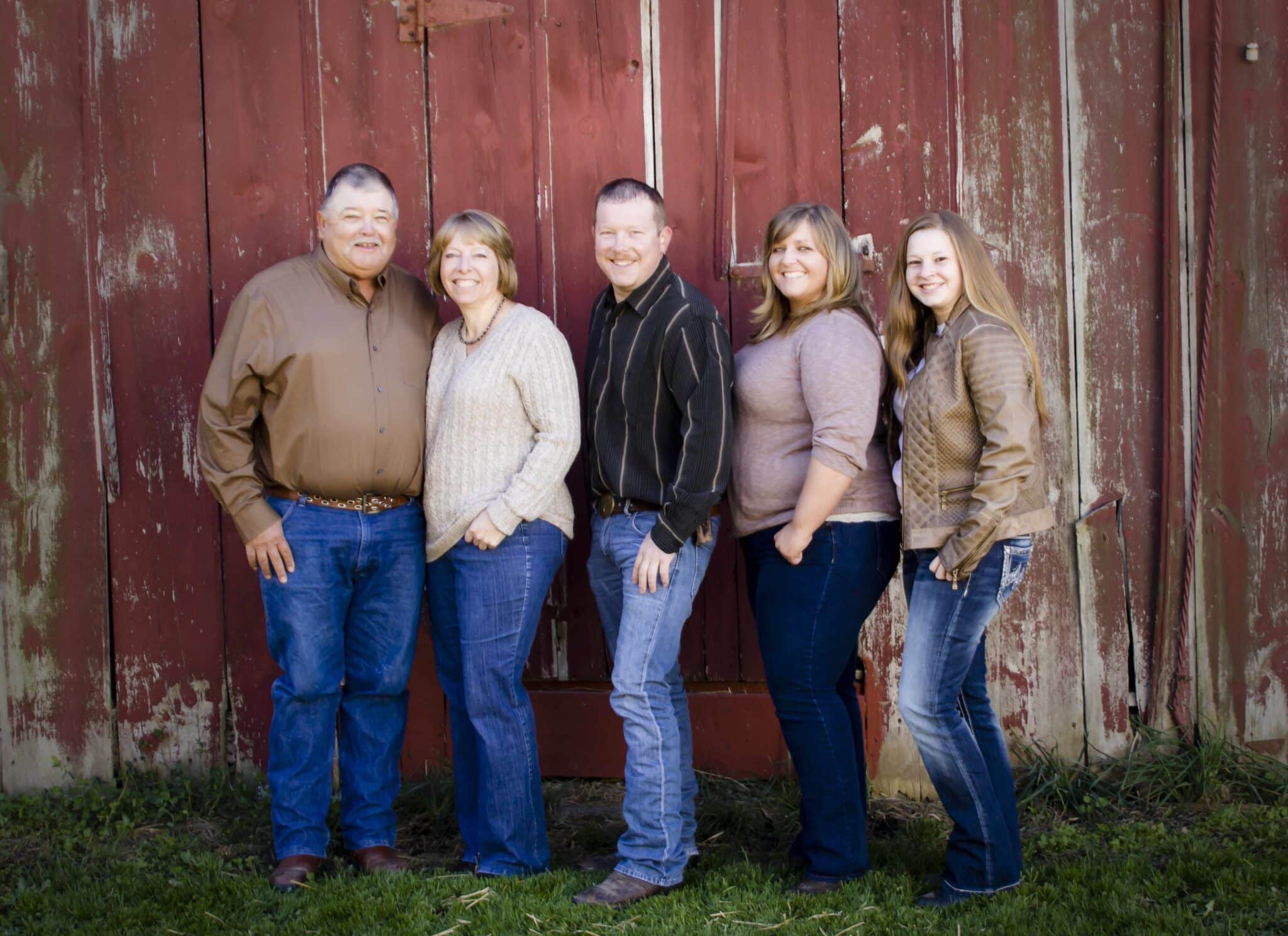
The timing was eerily perfect. Shortly after, her husband Dan suffered a head injury that left him in the hospital for five weeks. And even though he fully recovered, talking about those days still makes her emotional.
“The Korte Company has always taken care of me. They fronted me sick time, worked with my schedule and they even threw a benefit for him. I owe them a lot. It’s been great.”
She was never punished for making the best career decisions for herself and her family, and she still got front-seat access to some of our biggest projects — and people.
Now that’s what they call a comeback
Under Mike Tubbs, Sandy moved from the St. Louis office to a construction site for the first time.
“We were building the Edwardsville High School project, which was a big undertaking because Korte had taken it over. The school district had fired their old construction manager for going over budget and hired us to pick up the pieces, get it back in budget and get it built.
Sandy enjoyed the change of pace and focusing on just one project. She kept herself busy with change orders, paperwork and even just cleaning the trailer.
And though she didn’t realize it, her hard work caught the attention of Alan Schorfheide, who had been an estimator on the project. When he was promoted to a chief operating officer in 1998, he hand-selected Sandy as his executive assistant.
“And that’s how I got back to Highland. I’ve been in this role as an executive assistant for a long time.”
She’s so good at it that she still gets pulled from department to department, and person to person. These days, she answers to Brent Korte, Todd Korte and Susan Bowman. And while “executive assistant” is the kind of job title that seems to speak for itself, few could so capably pull it off day after day.
“’Executive assistant’ covers lots of things. But it’s whatever is needed, and I do whatever I need to do. I like working for people that need me.”
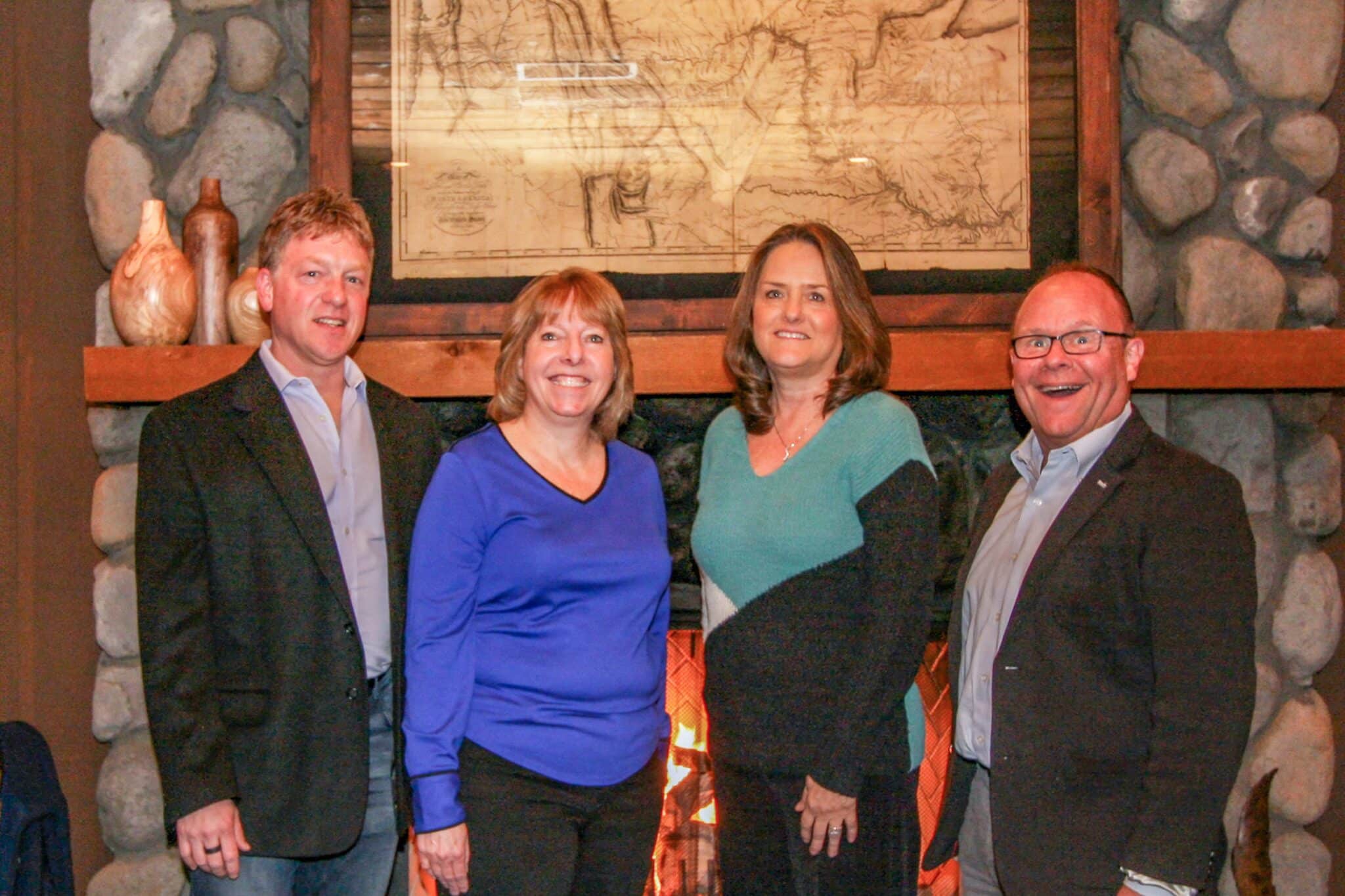
Working for the people
Sandy’s sense of duty to the people who need her goes beyond The Korte Company and even her family.
In 2011, she ran for an elected position on the board of directors for the Southwestern Electrical Cooperative — and won.
“I was at a time where my kids didn’t really need me so much anymore, and I thought it’d be something that’d be interesting and give me something outside of Korte, just to be involved in something different.”
Sandy grew up on a farm on the outskirts of Highland, so co-op membership has always been a natural extension of everyday life.
“When you live in the country, you’re proud to be a member of a co-op because you part own that company.”
And when it comes to the local utility companies, Sandy believes that most people don’t realize they’re in a co-op — which means that they have an opportunity to voice their needs that often goes overlooked.
“We’re not just customers. We part own the power company, and We all should have a say in it. It’s just different. For me, it’s just a whole different set of thinking on how it’s run, because you have to think, ‘Would my neighbor approve of me spending money like this?’ Because it’s their money too.”
It’s hard to say whether Sandy’s career has shaped this conscientious thinking or if it’s always been a part of what she naturally brings to the company. Maybe it’s a little bit of both. Maybe it’s because she grew up in a big family on a small dairy farm.
“When you’re raised on a farm, big families cling together.”
That kind of childhood tends to shape a team-like mentality where you put others first. And we don’t think that’s a bad thing. In fact, so many people who make The Korte Company what it is share upbringings that look like Sandy’s.
It’s always been important to Sandy to find ways to improve the lives of the people around her. While those impacts may seem subtle at times, they all build into a greater good. That’s why her contributions to The Korte Company have been so valuable over the years.
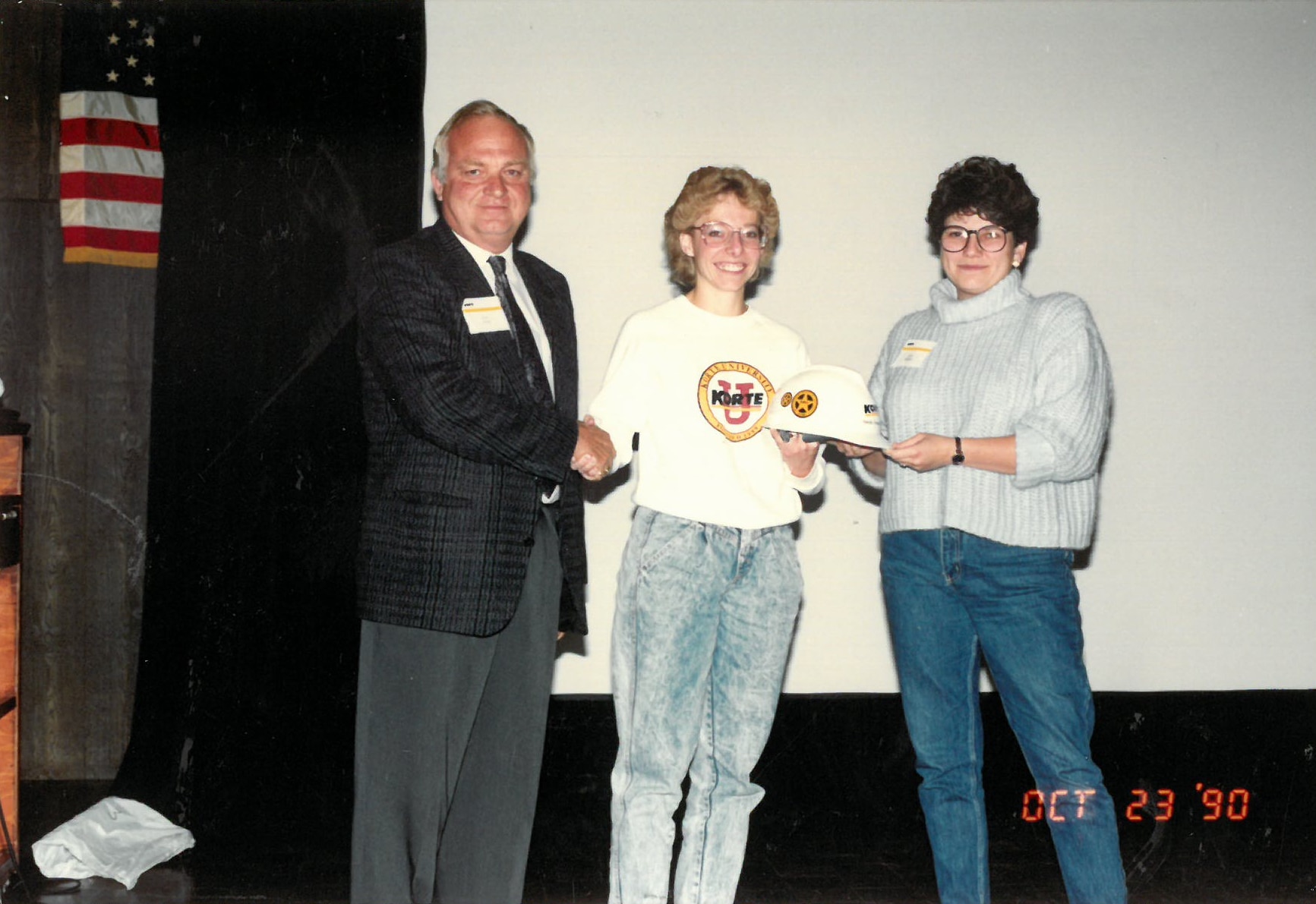
Building community inside and outside of work
After 41 years with The Korte Company, Sandy can field just about any question that pops up. And she prides herself on multitasking. Lately, that means handling owner contracts for the Las Vegas office and arranging company travel. It’s important to her to make sure they get tickets on non-stop flights whenever available, sleep in decent hotels and get home as fast as possible.
“We take care of our people. They’re the ones who get the work done on the jobs. If I can take care of little things, they can take care of the bigger stuff.”
It’s dedicated people like Sandy that keep a place like The Korte Company true to its roots. Those company values are exactly why Sandy has invested her entire career here.
“All of us have a common goal: to get this project off the ground and get it built. I am just on one end of it, but everybody pulls together. That’s always been our focus here, and it still is. We share the good and the bad, and that makes you feel like it’s your company, too.”
